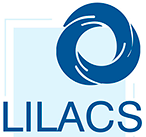Effectiveness of working with families in grief complicated by COVID-19 at the first level
DOI:
https://doi.org/10.19136/hs.a23n1.5724Abstract
Objective To determine the effectiveness of working with families in a phase of grief complicated by COVID-19 to restore homeostasis and family dynamics.
Material and Methods Study with a mixed approach, under a quasi-experimental design. It was developed in three stages: diagnosis, intervention and evaluation. In the first, 99 people who lost a family member during the pandemic were surveyed with the Complicated Grief Inventory (IDC) test and the FF.SIL to study family functionality. An intervention was carried out on five families with complicated grief and family dysfunction, through thirteen face-to-face sessions and the use of narrative and Gestalt therapy techniques, with the aim of recovering family homeostasis. To evaluate the effect of the intervention, a post-test was applied, as well as the families' comments. Student's t test was performed for the pre- and post-test difference.
Results Families with complicated grief and family dysfunction were found in 25.3%. In the pretest-posttest of the FF-SIL, the Student's T test observed a mean difference of Ⱦ=8.571, standard deviation of s±7.387, 95% CI confidence interval Li: 4.306; Ls: 12.837 and t value= 4.341, df=13 and p value=.0001, statistically significant.
Conclusion With the intervention, homeostasis, dynamics and family health were restored.
Keywords: Effect; COVID-19; Complicated Grief; Family Dynamics; Homeostasis.
Downloads
Downloads
Published
Issue
Section
License
Copyright (c) 2024 Horizonte Sanitario

This work is licensed under a Creative Commons Attribution-NonCommercial-ShareAlike 4.0 International License.





























